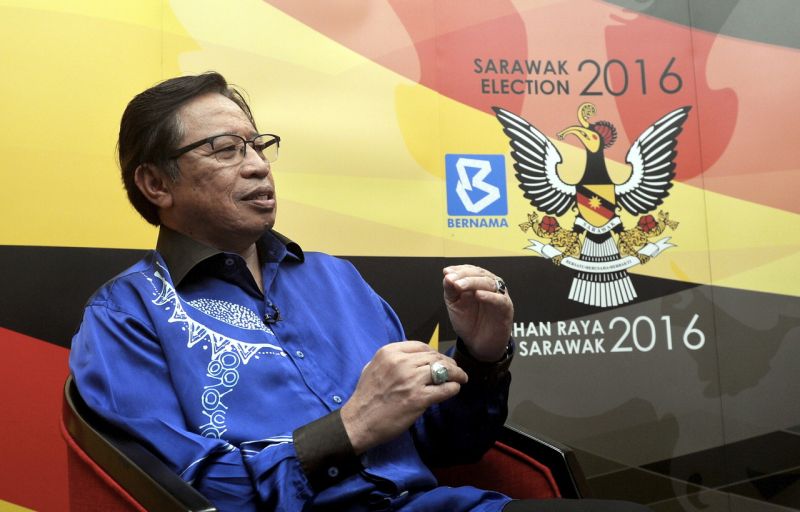KUCHING, July 17 — The Sarawak Multimedia Authority (SMA) will be set up soon to regulate the development of Information and Communication Technology (ICT) infrastructure and digital economy utilisation, said Chief Minister Datuk Amar Abang Johari Openg.
He said under the proposed SMA, the Sarawak Digital Economy Corporation would be established to coordinate all digital economy initiatives, including infrastructure, e-government, e-commerce, talent development and cyber security.
“The state government is committed to developing ICT infrastructure for speed of connectivity, promote Sarawak as a place to host data centres, promote e-learning among youths and establish a Digital Village and the E-Commerce Transformation Plan to 2030.
“As high-speed broadband and high connectivity is the foundation of a digital economy, the Sarawak government aims to provide high-speed broadband connection to improve the level of economic development and the lives of our people,” he said.
Abang Johari said this when launching the “Big Day In Sarawak” and a memorandum of understanding (MoU) signing ceremony between Swinburne Sarawak and the Australian Computer Society here today.
He said, with the Sarawak government having set its sights on developing the state’s economy into a digital one, there was a need to get young people interested in and on board ICT or related careers.
“As the government cannot do this on its own, we call on the various organisations to work with schools and institutions of higher learning, perhaps through offers of internship opportunities and/or the awarding of scholarship – to create interest in and participation by our young people in ICT,” he said.
He also urged parents to support their children’s decision if they chose computing as their career choice, to learn more about digital technology and how it was driving the future of the world today.
Abang Johari said he looked to business and industry to play a key role in retaining local computing experts, adding that corporations also needed to reinvent themselves in view of the growth and spread of ICT in the industries today.
Based on the MSC Talent Supply-Demand study 2013-2017, there would be a shortage of 5,000 to 7,000 ICT graduates from 2014 to 2017 while the Manpower Group’s Talent Shortage Survey 2015 found that IT staff was ranked fifth in terms of most difficult-to-fill jobs for the Asia-Pacific region, he added. —Bernama



















